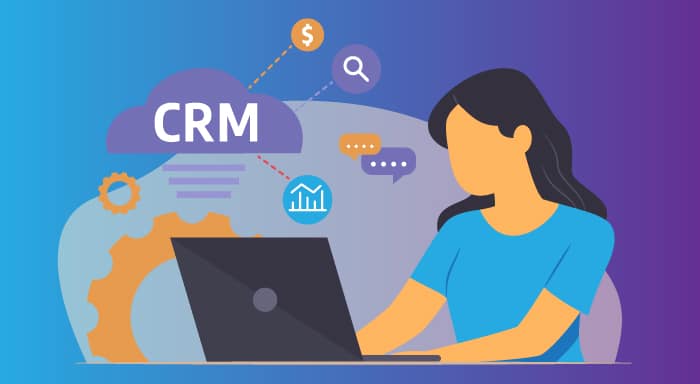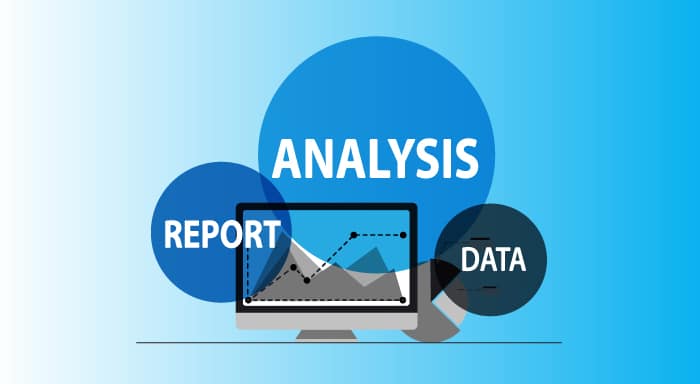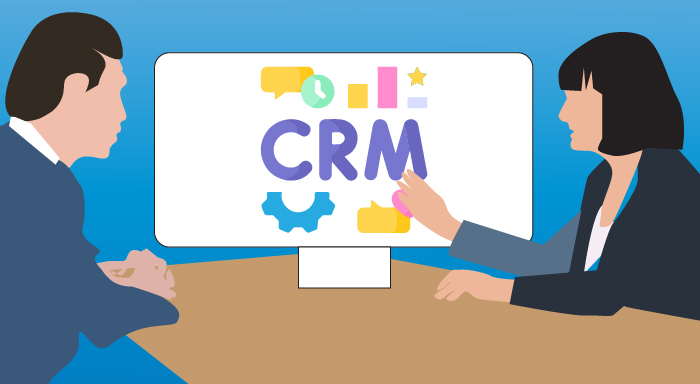There are many tools that an account-based marketing (ABM) campaign will need to use to run successfully. If you’re an ABM marketer interested in powering up your ABM approach, perhaps you should try incorporating a CRM Integration Supercharges Your ABM Strategy.
Hesitant? This article covers some ways you can use your CRM integration in the context of ABM campaign strategies.
Personalize your ABM campaign
You can’t say you’re running ABM marketing campaigns if you aren’t working constantly on personalizing your ABM campaign. Since the point of ABM is to focus more on your particular target accounts, it makes sense that to do that and to stand out more, you will need to work on personalization.
Consider that your target accounts, in their day-to-day lives, often are subject to ads, marketing, and someone selling to them. To stand out, you must dig deep and pinpoint their pain points so they know you’re listening to their needs.
If it’s palpable that you aren’t offering them what you’re selling simply because you need to make a sale but because you know they could benefit from it the most, then that will make your target accounts more interested in working with you.
Just know that personalization within ABM campaigns isn’t simply about changing the name of your email recipient in the email’s content using your CRM Integration Supercharges. That’s why audience and account research is vital so that you don’t end up sounding cold and automated when you intend to be personal and approachable to your target accounts.
Improved your account-based targeting
One of the tasks involved with running or launching an ABM campaign would be targeting the correct accounts for your campaign.
Since the main difference between traditional marketing and ABM is that they have specific targets, you want to ensure that all that effort you made to personalize things would work on the target accounts. Otherwise, it would be a colossal waste of your time and effort, but also theirs.
You can do a few things to help improve your approach to account targeting. Here is a summary of some of the things that you can do:
- Have a clear goal in mind for your specific ABM campaign.
- Create an Ideal Customer Profile (ICP) with your CRM and measure prospects against it.
- Look into your past or historical data and identify patterns to determine your most likely customers.
- Do research on your target account before approaching them. Identify things like their goals, industry, your connections with each other, etc.
Doing these lets you quickly determine whether a prospect is worth approaching and serving your marketing messaging.
Segment the decision makers of the account
Many marketing gurus will tell you that you should always only be talking to the decision-maker. However, with ABM processes in particular, there’s so much more that goes on than having one decision maker for their purchasing decisions most of the time.
So, what does that mean for your marketing approach then?
It’s simple. All you need to do is segment each decision-maker within your account.
Here’s an example: you’re a SaaS company (software as a service) offering your product to your target account, Company A.
The person using the product will be Person A, but the person paying for the product you’re selling is Person C. However, to get to Person C, Person A must show Person B that your product is necessary for their work.
If you focus on marketing to the “main decision-maker,” Person C, then you lose the support of Person A and B, who will probably use your product the most. Therefore, you must ensure you feed the right messaging appropriate to each segment, which you can easily do with the right CRM.
Enhanced data management

Although all marketers have to deal with a lot of data, ABM specifically needs you to sift through more data to get through your specific target accounts.
General information might be well and dandy when your marketing campaign caters to the general public, but with ABM, target accounts are closer to your messaging. Therefore, if it doesn’t align with them, even just a little bit, you can lose out on working with them.
Luckily, with the right CRM, you can access customer data and insights easily and at any time, all in one place. You can even update said data anytime you need to.
When you can access that information anytime, your marketing team can make the appropriate changes to the campaign. Also, even your sales team will have a go-to sales enablement tool.
Improve efficiency and automation
Another main reason you might be interested in getting a CRM integration for your ABM needs is to be more efficient with launching and running your campaigns. That’s because CRMs can help automate some of the busywork associated with every marketing campaign, especially for ABM.
One example of what a CRM can automate that we’ve already covered is the ability to manage target accounts’ data. However, you can even use it to send messages to your target accounts automatically. That way, you don’t have to deal with the minutiae and exhaust yourself before getting to the more profound strategy work.
Build stronger customer relationships
Some CRMs even can help you build stronger relationships with your target accounts. Nowadays, businesses must create memorable experiences if they want their target accounts to consider them and buy their products or services. With a CRM, you can do just that and time it well.
Sometimes, it can be as simple as sending gifts to congratulate your target account on a recent success. That way, you can get them a truly personalized approach while keeping you at the top of their mind.
Better sales and marketing collaboration
As briefly mentioned, your sales team will also appreciate the CRM for your ABM campaigns, which is why it’s much better for overall sales and marketing collaboration.
Since many sales folk are on the go and meeting face-to-face with your target accounts, it can take a lot of work to get a sit down with them. With your CRM, sales and marketing can have an avenue to get in touch and work with one another to create a seamless customer journey, even outside of your marketing funnel.
Efficient Lead Scoring
Speaking of a marketing funnel, another benefit to a CRM is its ability to create scores of your leads to help you understand which ones are doing actions that make them more likely to convert.
Again, your sales team can use that information to contact the most sales-ready of your leads. However, it’s also an excellent way for the marketing team to know which leads could use which specific messaging angles.
Enhance reporting and analytics

You want to ensure that you’re constantly adapting and evolving your ABM campaigns based on the feedback and the results you got from your most recently finished campaigns. With a CRM, you will have built-in reporting and analytics that you can pull from to determine how you can improve your next ABM campaign.
Some might even give you the option to white-label these reports so that you can put your brand on these generated reports.
Conclusion
Now that you know how a CRM integration can help you with your ABM campaigns, it might be time to start looking for the right one for your work.
Don’t be afraid to shop around for a CRM Integration Supercharges that makes your ABM strategy work easier and does not increase your workload.
Author’s BIO

With 15 years of experience in CRM, I specialize in developing plugins for SuiteCRM and SugarCRM. My notable creations include SuiteCRM Email to Lead, SuiteCRM BCC Archiver, and SugarCRM Mailchimp. My expertise lies in enhancing CRM functionalities to drive business efficiency and growth.
Additionally, I create content on YouTube, sharing insights and tutorials on CRM solutions to help businesses enhance their efficiency and growth.



